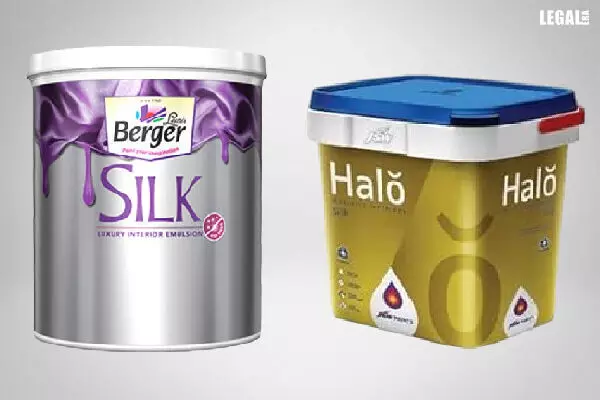- Home
- News
- Articles+
- Aerospace
- Artificial Intelligence
- Agriculture
- Alternate Dispute Resolution
- Arbitration & Mediation
- Banking and Finance
- Bankruptcy
- Book Review
- Bribery & Corruption
- Commercial Litigation
- Competition Law
- Conference Reports
- Consumer Products
- Contract
- Corporate Governance
- Corporate Law
- Covid-19
- Cryptocurrency
- Cybersecurity
- Data Protection
- Defence
- Digital Economy
- E-commerce
- Employment Law
- Energy and Natural Resources
- Entertainment and Sports Law
- Environmental Law
- Environmental, Social, and Governance
- Foreign Direct Investment
- Food and Beverage
- Gaming
- Health Care
- IBC Diaries
- In Focus
- Inclusion & Diversity
- Insurance Law
- Intellectual Property
- International Law
- IP & Tech Era
- Know the Law
- Labour Laws
- Law & Policy and Regulation
- Litigation
- Litigation Funding
- Manufacturing
- Mergers & Acquisitions
- NFTs
- Privacy
- Private Equity
- Project Finance
- Real Estate
- Risk and Compliance
- Student Corner
- Take On Board
- Tax
- Technology Media and Telecom
- Tributes
- Viewpoint
- Zoom In
- Law Firms
- In-House
- Rankings
- E-Magazine
- Legal Era TV
- Events
- Middle East
- Africa
- News
- Articles
- Aerospace
- Artificial Intelligence
- Agriculture
- Alternate Dispute Resolution
- Arbitration & Mediation
- Banking and Finance
- Bankruptcy
- Book Review
- Bribery & Corruption
- Commercial Litigation
- Competition Law
- Conference Reports
- Consumer Products
- Contract
- Corporate Governance
- Corporate Law
- Covid-19
- Cryptocurrency
- Cybersecurity
- Data Protection
- Defence
- Digital Economy
- E-commerce
- Employment Law
- Energy and Natural Resources
- Entertainment and Sports Law
- Environmental Law
- Environmental, Social, and Governance
- Foreign Direct Investment
- Food and Beverage
- Gaming
- Health Care
- IBC Diaries
- In Focus
- Inclusion & Diversity
- Insurance Law
- Intellectual Property
- International Law
- IP & Tech Era
- Know the Law
- Labour Laws
- Law & Policy and Regulation
- Litigation
- Litigation Funding
- Manufacturing
- Mergers & Acquisitions
- NFTs
- Privacy
- Private Equity
- Project Finance
- Real Estate
- Risk and Compliance
- Student Corner
- Take On Board
- Tax
- Technology Media and Telecom
- Tributes
- Viewpoint
- Zoom In
- Law Firms
- In-House
- Rankings
- E-Magazine
- Legal Era TV
- Events
- Middle East
- Africa
Calcutta High Court Rules In Favour Of JSW Paints: Use Of 'Silk' As Paint Finish Not Infringement Of Berger's Trademark

Calcutta High Court Rules In Favour Of JSW Paints: Use Of 'Silk' As Paint Finish Not Infringement Of Berger's Trademark
Calcutta High Court has affirmed a ruling by a single bench stating that the use of the term 'silk' to describe a paint's texture was customary and could not be safeguarded as a trademark.
The division bench of Justices IP Mukherji and Prasenjit Biswas maintained that there would be no intervention with the challenged verdict and order dated December 12, 2023. They stipulated that the respondent could use the term silk on the tumbler only if the product inside had a silk finish and refrain from using the term if the product had any other finish or sheen. This description should be upheld on the respondent's website and in any other form of product advertisement.
The appellant (Berger) argued that they had held registrations for the term ‘SILK’ since 1980 for their paints and related products. They claimed that JSW Paints' use of 'SILK' for identical products constituted an infringement of their registered trademark 'SILK'.
It was further argued that JSW Paints purportedly adopted the trademark intentionally, being fully aware of Berger Paints' business conducted under their trademark SILK, with the aim of gaining an unfair advantage and leveraging the goodwill and reputation of Berger Paints' paint products.
Conversely, JSW Paints contended that its utilization of the term "SILK" aligned with industry norms and was purely descriptive of the paint's finish or sheen marketed under the trademark HALO.
JSW Paints argued that its products were promoted under the renowned brand HALO, with the term SILK being one of many descriptive terms. These terms, including matte, satin, and gloss, were used to depict the various finishes of paints under the HALO brand.
Consequently, the court concurred with JSW's arguments and rejected the plea.
In the current appeal, the court observed that both counsels acknowledged that the term ‘silk’ on the products' tumbler should indicate a description of the products. However, when this term is combined with the trademark or trade name of a product, it could potentially lead to the misrepresentation of one party's goods as those of the other.
Therefore, it rejected the appeal, stipulating that the appellant's exclusive right to use the word ‘silk’ for its products would be determined during the trial.



